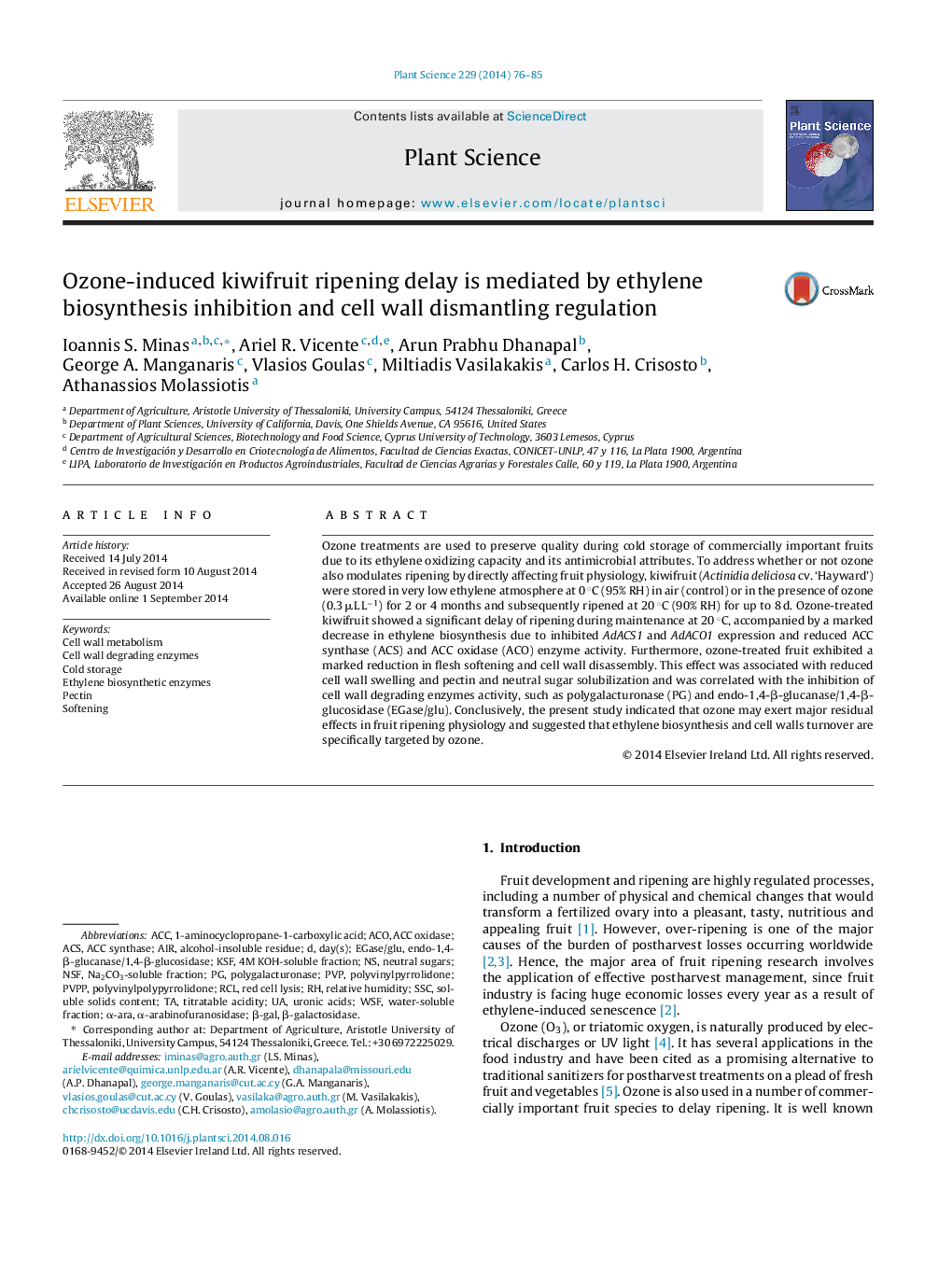| Article ID | Journal | Published Year | Pages | File Type |
|---|---|---|---|---|
| 8358037 | Plant Science | 2014 | 10 Pages |
Abstract
Ozone treatments are used to preserve quality during cold storage of commercially important fruits due to its ethylene oxidizing capacity and its antimicrobial attributes. To address whether or not ozone also modulates ripening by directly affecting fruit physiology, kiwifruit (Actinidia deliciosa cv. 'Hayward') were stored in very low ethylene atmosphere at 0 °C (95% RH) in air (control) or in the presence of ozone (0.3 μL Lâ1) for 2 or 4 months and subsequently ripened at 20 °C (90% RH) for up to 8 d. Ozone-treated kiwifruit showed a significant delay of ripening during maintenance at 20 °C, accompanied by a marked decrease in ethylene biosynthesis due to inhibited AdACS1 and AdACO1 expression and reduced ACC synthase (ACS) and ACC oxidase (ACO) enzyme activity. Furthermore, ozone-treated fruit exhibited a marked reduction in flesh softening and cell wall disassembly. This effect was associated with reduced cell wall swelling and pectin and neutral sugar solubilization and was correlated with the inhibition of cell wall degrading enzymes activity, such as polygalacturonase (PG) and endo-1,4-β-glucanase/1,4-β-glucosidase (EGase/glu). Conclusively, the present study indicated that ozone may exert major residual effects in fruit ripening physiology and suggested that ethylene biosynthesis and cell walls turnover are specifically targeted by ozone.
Keywords
ACCβ-galWSFPolygalacturonasePVPPACORCLNSFSSCACSα-arabinofuranosidaseKSFPVP1-aminocyclopropane-1-carboxylic acidACC oxidaseACC synthaseCell wall degrading enzymesUronic acidstitratable acidityalcohol-insoluble residueβ-galactosidaseCold storageRelative humidityday(s)Neutral sugarsCell wall metabolismsoluble solids contentSofteningAIRpolyvinylpyrrolidonePectinpolyvinylpolypyrrolidoneWater-soluble fraction
Related Topics
Life Sciences
Agricultural and Biological Sciences
Plant Science
Authors
Ioannis S. Minas, Ariel R. Vicente, Arun Prabhu Dhanapal, George A. Manganaris, Vlasios Goulas, Miltiadis Vasilakakis, Carlos H. Crisosto, Athanassios Molassiotis,
